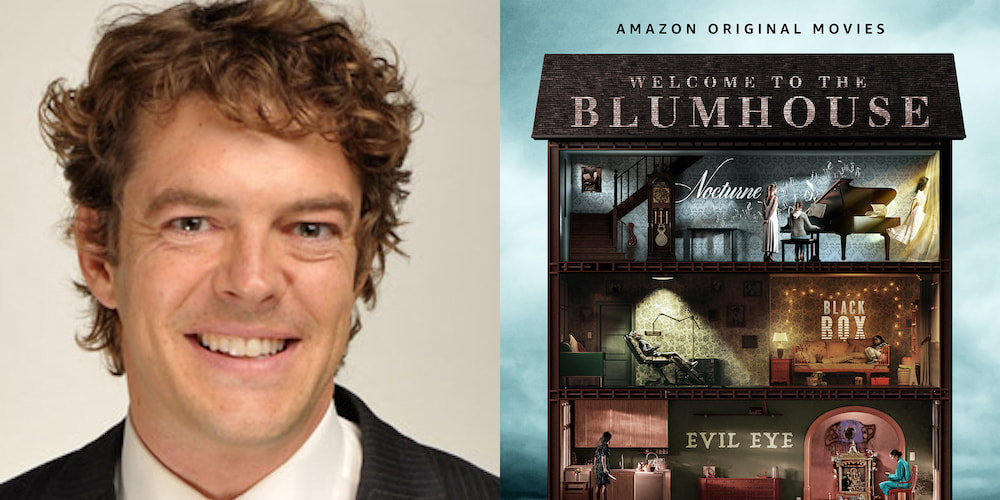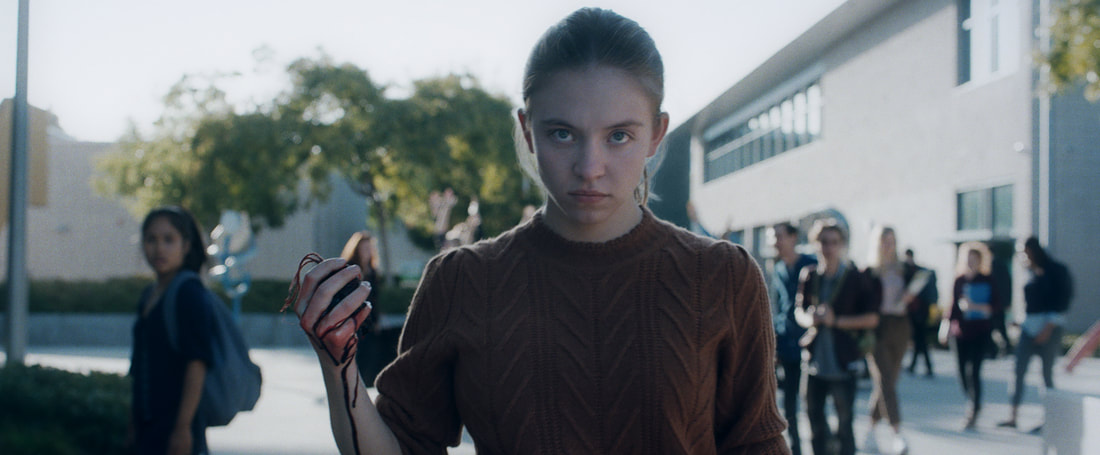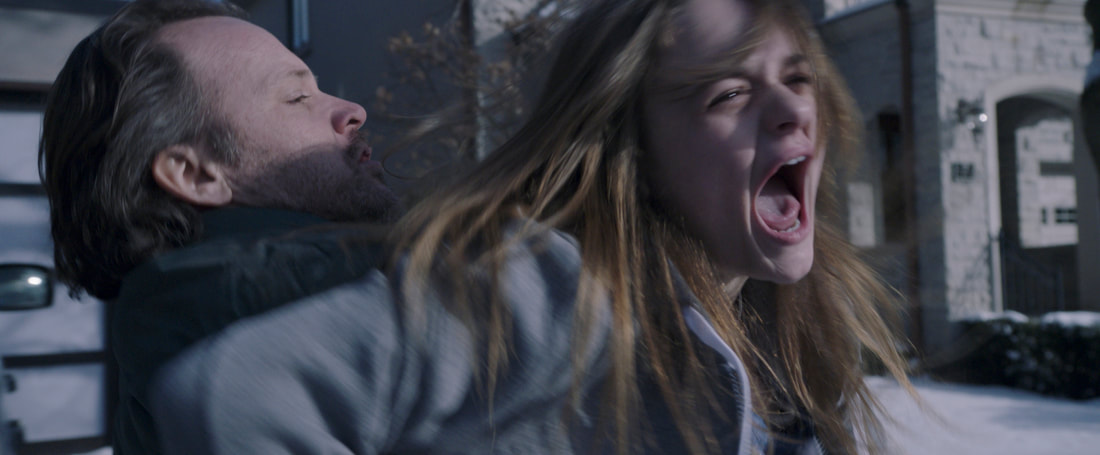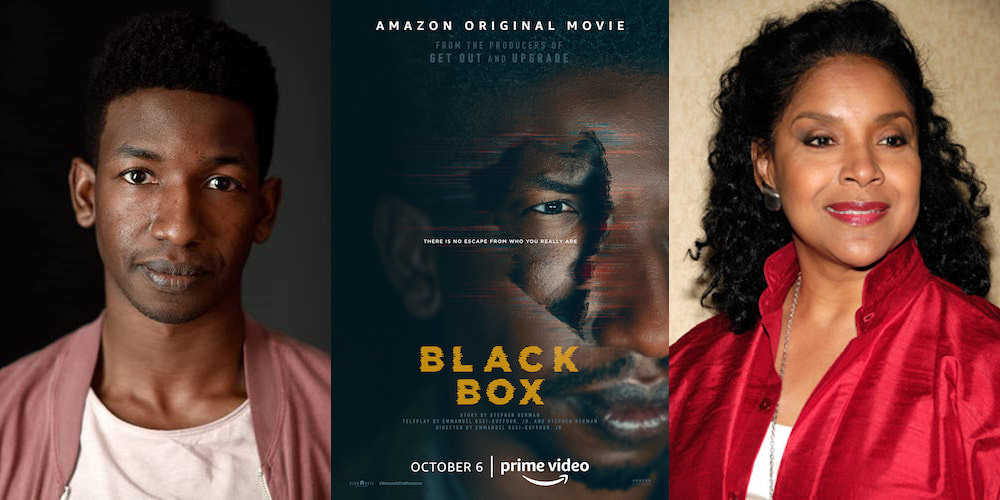|
Interview by Sean Boelman
In anticipation of the release of his new anthology Welcome to the Blumhouse, disappointment media got the opportunity to speak with producer Jason Blum. Featuring four films from underrepresented voices, this anthology challenges viewers to find horror in unexpected places. Check out the interview below!
On the Changing Nature of Film Distribution
disappointment media: So my first question is that horror is typically something that's seen as a communal experience. But right now, given the circumstances, obviously, seeing a scary movie in a packed theater isn't really something that's possible. What is it about these four films in Welcome to the Blumhouse that you think will allow them to thrive despite not having this experience?
Jason Blum: Well, that's a good question. Three of the four films were produced and bought and designed specifically for streaming. So we had different boxes we were looking to check. I think when you're looking to do a theatrical, scary movie, you know, there's certain guardrails that you've got to hit, even, you know, Get Out, or Split, or The Invisible Man, you know, there's got to be jumpscares, they've got to be timed in a certain way. And one of the great things about doing scary movies for streaming is that you're relieved of that, you can tell stories slightly differently, you can really lean into making the stories more unnerving and unsettling, as opposed to jumpscares. And actually, I think that it allows a broader canvas for our filmmakers. So in that sense, you know, one of the reasons I was really excited about doing this was the idea that I was going to get to tell horror movies that I didn't have to worry about opening weekend, which is a big relief. disappointment: Welcome to the Blumhouse is the beginning of what should be a fruitful relationship between your company and Amazon Prime. What else can we look forward to from this collaboration? Blum: I don't really remember what else is announced or not, but we have three or four projects. One finished movie that hopefully will come out next year with Amazon and then three or four projects in development with them, both on the series and the movie side. So I'm looking forward to doing a lot more with them. I was extremely happy with how this show was introduced to the world. I thought the marketing on it was great. I love the poster. And all of that 100% came from Amazon. I love the trailer. As a producer, you work so hard on these things, you want to feel like your distributor's taking care of it. And I felt very well taken care of by these guys. So hopefully, there'll be a lot more to come. disappointment: Yeah, that's awesome. I look forward to it. And also Blumhouse has kind-of been at the forefront of the changing landscape of film distribution in recent months. What do you see as the direction in which the industry should be heading? Blum: Look, I think everyone should adopt the PVOD model. I think that premium VOD, eventually is going to keep the theatrical-going experience alive and well and relevant. I know, that's a relatively controversial thing to say, but I believe it. And I think we have to give exhibition their fair share. And I'm sure that's, you know, what some of what the holdup is, but I really believe, not for all movies, but there are a lot of movies now that are going straight to streaming. And I think a lot of those movies would play in theaters if we could agree on, you know, this shorter window. And I think, I think in a world where all the exhibition chains and all the studios agreed to what that window would be, you'd see many, many, many, many more movies playing in movie theaters for a much, much, much shorter period of time. But I think you could potentially see more business in movie theaters and the consumer would have more choice. You know, consumers always complain. You know, the only thing that's in the movie theaters are tentpole movies and horror movies, our movies. I understand that. You know, it's largely true. And I think if we could get exhibition and studios to agree, that you'd have a much wider variety of movies. If every movie to play in the theater had to open to $20 million, you took that pressure off, you know, you could see a much greater variety of movies playing. So I'm very hopeful for it. It's almost happened, but it hasn't quite happened yet, but I have big hopes for the new theatrical window. On Welcome to the Blumhouse
disappointment: I think one of the really cool things about Welcome to the Blumhouse is that three of the four films are directed by people of color, and two of them are directed by women. Could you talk about some of the work that Blumhouse is doing to promote diversity and horror?
Blum: Yeah, for sure. Well, this series was one of the big things we have. We have The Craft coming out later this month, directed by a woman, we had this movie called Run Sweetheart Run, which is directed by Shana Feste, another woman. So for instance, [since] the beginning of Blumhouse, we've been mindful of making movies about race and gender and ethnicity, and less mindful about the people behind the movies you know, looking different than I look. And in the last couple of years, I'd like to say, you know, before we had to, and certainly this, this started two years ago, I put a big emphasis on the importance of having the storytellers behind the camera represent our audience, and our audience is less than fifty percent white. And you know, this show is the best example to answer your question. disappointment: So one of the things that ties these four Welcome to the Blumhouse films together is the idea of family. And so what about this theme really resonated with you? Blum: Well, to me, if you task a filmmaker with doing something, you know doing a horror movie and don't give them a lot of money, as soon as you say money is no object, they start talking to you about what the CGI, what the monster is going to look like, or killing fifty people, right? But when you take money out of the equation, it focuses the filmmaker on making it tighter and smaller, and how do I scare people without special effects. And the way to do that is, the most effective way to do that, I think is you take what's most sacred to everyone, which is their relationships to their family, to their parents, or their kids, their husband, their wife, their brother, their sister, and you threaten it with some kind of exterior event. And I think you see that in all four movies to a certain degree. That you have some kind of human relationship and you have this exterior event and it threatens it and then you watch and see how people react. And I think that's very satisfying. It's very satisfying as an audience member, I find that always fun to watch and exciting to watch and satisfying to watch and satisfying to say like, hey, how would I do this differently? Or what would I do? And then also satisfying to twist things around like, you know, with The Lie you think the parents are great people protecting their daughter and they turn out not to be. With Evil Eye, you know, you think that she's this overbearing mother who's out of her mind and she turns out not to be. And I like that too. I like twisting, twisting things around like that, like our filmmakers did. disappointment: One of the things that I think makes Welcome to the Blumhouse really unique is this idea of programming it as an anthology. What was the appeal of this to you guys? Blum: There's a big appeal when you can go to the world and you can say, look, we have eight slots, I have eight slots for movies, they have to be scary, the filmmaker has to be from an underrepresented group. But otherwise, you know, anything else goes and the amount of incoming material we had was great. We had a ton of different things to look at, and a lot of really quality things and a lot of really talented people. And you know, my hope is that this series is successful. And every October you can see four new Welcome to the Blumhouse movies from us and Amazon, I really hope that's what happens. But that's the advantage of instead of looking for one offs and being able to say we have it, every year we have four of these to fill and it becomes a self-fulfilling thing. So then when a representative or an artist is like "Ooh, you know I have a movie that would fit Welcome to the Blumhouse, better send it to Jason." So you get more and more, it's you know, the opposite of diminishing returns, the longer it goes, the better it gets. So hopefully we'll be able to do it for many years to come. disappointment: Another really cool thing about these films is that they partner rising stars with legendary performers. What did you like most about setting up these pairings? Blum: You don't want to make everyone a kid right? Or just starting out, I should say. So you know a lot of times our talent on the acting side were actors of note who've had terrific careers. I think in a lot of cases, they would help mentor the filmmakers and vice versa. With Veena [Sud], a mentor to the actress in her show. And I think that makes for interesting work. You know, when you have people who were at the beginning of their career and people who were established working together, I think it makes for more interesting work, sometimes tense conversations, but it leads to great work. On the Blumhouse Legacy
disappointment: A lot of people initially think of Blumhouse as a horror company, because that's a lot of what you guys do. But you guys also make thrillers and other horror-adjacent movies like The Lie, which isn't quite a horror movie. Why do you enjoy telling these types of stories?
Blum: I like kind-of exploring dark theme things on the TV company, you know, it's much broader, even than that we did The Loudest Voice, which is definitely not a horror movie, but about someone in my mind who was very horrible. I mean, Roger Ailes, you know, horrible guy. And why, I don't know, but I'm interested in exploring dark themes. I guess, I'm interested in shining light on people who are doing things that are wrong, and, you know, letting the public decide about it. And so that's kind of the filter that we look through to decide if something should be Blumhouse. It's mostly horror, you're absolutely right, but I think there's room for other things that touch on horrible issues. Whiplash is not a horror movie. But JK Simmons was certainly not a nice music teacher. disappointment: You mentioned Whiplash, and with Whiplash and now Nocturne, you've produced two films about obsession in music conservatories. What do you think about this premise is so terrifying? Blum: I don't know, I haven't mandated that. I haven't said to my people, like find other music conservatory scary stories, but I think people get passionate. It's like what I was talking about, you know, your tightest relationship is with other people. But I think that same passion exists, especially in musicians, you have to have, you know, something that most of us including me don't have to become a professional musician. And interfering with that drives people crazy. And that's a fun thing to watch. disappointment: It was recently announced that you were going to be doing an adaptation of Firestarter. Are you excited to tackle this iconic Stephen King story? Blum: Oh God, I really am. I mean, we've been working on this a long time. It's taken a long time for all the pieces to come together in the right way. But I'm a huge Stephen King fan and we've got a lot with him going on right now. And I'm really psyched. I love this script and I can't wait to make the movie. disappointment: Yeah, I'm very excited for it. Blumhouse often takes pre existing material and puts a spin on it, like The Lie is a remake of a German film, you've got Firestarter, and you've got The Craft. So how do you focus on the filmmaker's voice coming through? Blum: You tell the filmmaker to take the existing IP and make it their own. I think that's how you do it. I think the idea is not to rip off the first version of it but not to divorce yourself completely. Otherwise why are you using it, but to kind of walk this fine line in between those two things. But it's very important that the filmmaker find their own voice using whatever IP we're using. And we did that with David Gordon Green with Halloween, you know, we said, "What is David Gordon Green's version of Halloween today?" And he said, "Do I have to take into account all the rest of the movies?" I said, "No, you know, you have to take into account the first movie, what you do after that is up to you." He chose to take into account one and two. But I think you have to get the filmmaker in the world of the IP that you're dealing with for a while, and then tell them to forget it, and do your own thing. That's what I think. disappointment: And low budget sci-fi is another thing that you guys do a lot. And so you did Upgrade and Black Box is also low budget sci-fi, but it's a very difficult genre to pull off. Do you have a secret to success for that genre? Blum: The Purge is low budget sci-fi too. Uh, you know, I look at it like a low budget horror, which is if you take the sci-fi out of it, is there a drama that can work? I think that all three movies, that it's true that if you took the sci-fi out of the movie, there would be a drama that still works. Even in Upgrade, a guy coming to terms with recovering from an accident? I mean, and how the accident happened and losing his wife. I think that's the key. And we don't always succeed at this, but I think the key to making a good genre movie, whether it's horror, or sci-fi, or even action, is that if you take out the action, or you take out the horror, you take out the sci-fi element, if there's a great dramatic story that stands on its own without that, that's the key to making a good low-budget genre movie of any kind.
Black Box and The Lie are now streaming on Amazon Prime. Nocturne and Evil Eye stream on Amazon Prime beginning October 13.
0 Comments
Mamoudou Athie and Phylicia Rashad Talk Their WELCOME TO THE BLUMHOUSE Horror Flick BLACK BOX10/5/2020
Interview by Sean Boelman
In anticipation of the release of their newest film Black Box, disappointment media got to sit down and talk with actors Mamoudou Athie and Phylicia Rashad. In the interview, we discuss the film's script, the dynamic between the rising star and the acting legend, and the role of people of color in Hollywood. Check out the interview below and watch Black Box streaming on Amazon Prime beginning October 6!
|
Archives
March 2024
Authors
All
|
|
|
disappointment media
Dedicated to unique and diverse perspectives on cinema! |




